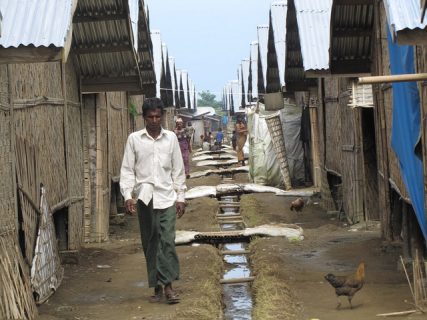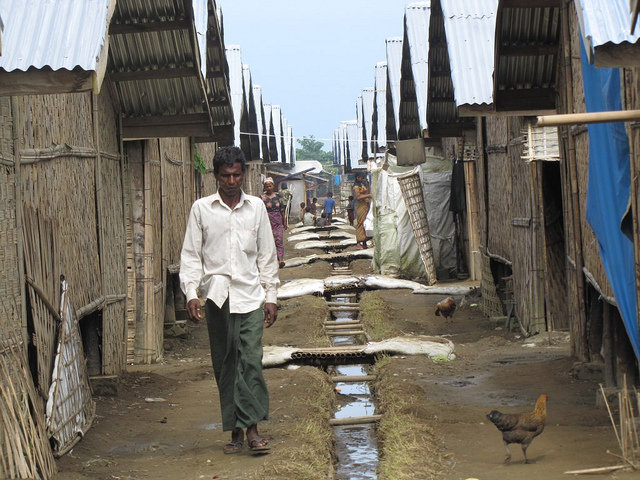
Some 90,000 Rohingya now find themselves squeezed into camps near the capital Sittwe in Arakan state, Bangladesh, living in cramped barrack-type shelters.
(RNS) At the end of a three-day tour, the Saudi-based Organization of Islamic Cooperation told Buddhist-majority Myanmar to repeal “laws restricting fundamental freedoms” after more than 240 Muslims were killed by Buddhist mobs during the past year.
Before the OIC delegates left Myanmar on Saturday (Nov. 16), they visited minority ethnic Rohingya Muslims who fled the violence and are now living in squalid camps along the border with Bangladesh in Myanmar’s Arakan state, also known as Rakhine.
Headed by Secretary General Ekmeleddin Ihsanoglu, the OIC delegation called on the government to continue legal reforms, The New Light of Myanmar newspaper reported.
The Myanmar government responded by saying it would help “put an end to all acts of violence, protect the civilian population from violence and ensure full respect for human rights and fundamental freedoms, including in the Rakhine State,” the IOC said.
Myanmar has refused to grant citizenship to 800,000 Rohingya and told them to “return” to Muslim-majority Bangladesh even though many Rohingya have lived on the Myanmar side of the border for generations.
On Friday (Nov. 15), about 3,000 Buddhists led by robed monks marched through Sittwe, capital of Arakan state, to protest against the OIC’s involvement in the Southeast Asian nation’s ethnic problems.
Anti-OIC activists — who include monks and others who express racist views against the darker-skinned Rohingya — suspect the OIC harbors a plot by Saudi Arabia to control their country.
The protesters also converged on Sittwe’s airport to voice their anger when the OIC delegates’ plane arrived, before the officials transferred to helicopters to reach the Rohingyas’ isolated camps.
About 5,000 of the 240,000 Rohingya who fled their homes because of the clashes welcomed the OIC when the delegates visited camps for internally displaced people near Sittwe.
The OIC — accompanied by officials from the Muslim-majority nations of Turkey, Saudi Arabia, Djibouti, Egypt, Bangladesh and Malaysia — arrived in Myanmar on Nov. 14, and met government officials in the capital Naypyitaw to discuss the “peace and stability of Rakhine state and rehabilitation,” according to The New Light of Myanmar.
They also spoke with the Interfaith Friendship Group, United Nations officials and others.
The 57 nations that comprise the OIC make it the world’s largest international Islamic organization.
The OIC describes itself as “the collective voice of the Muslim world.” It has a permanent delegation at the United Nations.
YS/AMB END EHRLICH





